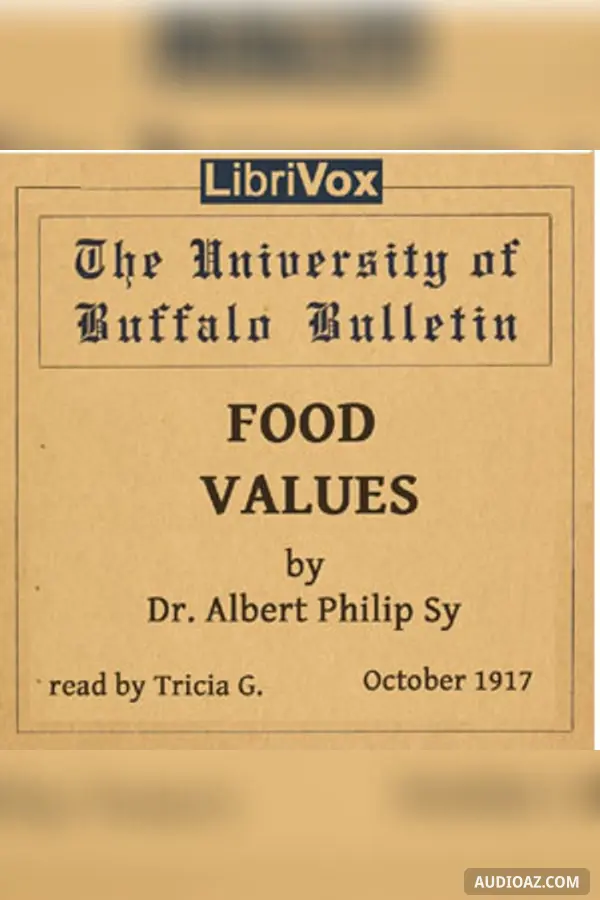
The Natural History Volume 4 - Free Audiobook
Author(s): Pliny the Elder
Language: English
Genre(s): Classics (Greek & Latin Antiquity)Life SciencesNon-fictionScience
1 / 3901 - Book 16, Chapters 1-7: Countries that have no trees; wonders connected with trees from the northern regions; the acorn oak; the civic crown; the origin of the presentation of crowns; persons presented with a crown of leaves; 13 varieties of the acorn; the beech
- 1. 01 - Book 16, Chapters 1-7: Countries that have no trees; wonders connected with trees from the northern regions; the acorn oak; the civic crown; the origin of the presentation of crowns; persons presented with a crown of leaves; 13 varieties of the acorn; the beech
- 2. 02 - Book 16, Chapters 8-15: The other acorns; wood for fuel; the gall-nut; other productions on these trees; cachrys; the kermes berry; agaric; trees of which the bark is used; shingles
- 3. 03 - Book 16, Chapters 16-23: The pine; the pinaster; the peach-tree; the fir; the larch; the torch-tree; the yew; methods of making tar; methods by which thick pitch is prepared; how the resin called zopissa is prepared
- 4. 04 - Book 16, Chapters 24-38: Trees the wood of which is highly valued; four varieties of the ash; two varieties of the linden tree; ten varieties of the maple; bruscum; molluscum; three varieties of the box-tree; the natures of the various trees according to their localities; trees which grow on dry soil; division of trees into various species; trees which do not lose their foliage; the nature of the leaves which wither and fall; trees which have leaves of various colours; leaves which turn round every year; the care bestowed on the leaves of the palm; remarkable facts connected with leaves
- 5. 05 - Book 16, Chapters 39-50: The natural order of the production of plants; trees which never blosom; the juniper; the fecundation of trees; germination; the appearance of fruit; in what order trees blosom; at what period each tree bears fruit; the cornel; trees which bear no fruit; trees looked upon as ill-omened; trees whcih lose their fruit and flowers most readily; trees which are unproductive in certain places; the mode in which trees bear; trees that bear two crops in a year
- 6. 06 - Book 16, Chapters 51-61: Which trees become old with the greatest rapidity; trees which bear various products; differences in trees in respect of the trunks and branches; the branches of trees; the bark of trees; the roots of trees; trees which have grown spontaneously from the ground; how trees grow spontaneously; plants that will not grow in certain places; the cypress; that the earth often bears productions which it has never borne before
- 7. 07 - Book 16, Chapters 62-69: The ivy; twenty varieties of it; the smilax; water plants; the rush; 28 varieties of the reed; reeds used for arrows; flute reeds; the vine-dressers reed; the willow; eight varieties of it; trees in addition to the willow
- 8. 08 - Book 16, Chapters 70-79: Rushes; the elder; the bramble; the juices of trees; the veins and fibres of trees; the felling of trees; the opinion of Cato and the felling of timber; the size of trees; methods of obtaining fire from wood; trees which are proof against decay; historical facts connected with the durability of wood
- 9. 09 - Book 16, Chapters 80-95 : Varieties of the teredo; the woods used in building; carpenter's woods; woods united with glue; veneering; the age of trees; trees as old as the city; trees older than the city; trees planted by Agamemnon the first year of the Trojan war; trees planted at Argos by Hercules; trees which are the most short lived; trees that have been rendered famous; three varieties of the mistletoe; historical facts connected with the mistletoe; summary; Roman authors quoted; foreign authors quoted
- 10. 10 - Book 17, Chapters 1-4 : Trees that have been sold at enormous prices; the influence of weather upon trees; what soild are to be considered the best; the eight kinds of earth boasted of by the Gauls and Greeks
- 11. 11 - Book 17, Chapters 5-13 :The employment of ashes; manure; crops that tend to improve the land; the proper mode of using manure; the modes in which trees bear; plants which are propagated by seed; trees which never degenerate; propagation by suckers; propagation by slips and cuttings
- 12. 12 - Book 17, Chapters 14-19 : Seed-plots; the mode of propagating the elm; the holes for transplanting; the intervals to be left between trees; the nature of the shadow thrown by trees; the dropping of water from the leaves
- 13. 13 - Book 17, Chapters 20-28: Trees which grow but slowly; trees propagated from layers; grafting; inoculation or budding; the various kinds of grafting; grafting the vine; grafting by scutcheons; plants which grow from a branch; trees which grow from cuttings
- 14. 14 - Book 17, Chapters 29-34: The cultivation of the olive; cleaning and baring the roots; willow-beds; reed-beds; other plants that are cut for poles
- 15. 15 - Book 17, Chapter 35: The culture of the vine
- 16. 16 - Book 17, Chapters 36-39 : How grapes are protected; the diseases of trees; treatment of the diseases of trees
- 17. 17 - Book 17, Chapters 40-47: Methods of irrigation; remarkable facts connected with irrigation; incisions made in trees; caprification; errors that may be commited in pruning; the proper mode of manuring trees; medicaments for trees; summary; Roman authors quoted; foreign authors quoted
- 18. 18 - Book 18, Chapters 1-7: Taste of the ancients for agriculture; the first wreaths of corn at Rome; the jugerum of land; the price of corn; writers upon agriculture; on buying land; arrangements for a farmhouse
- 19. 19 - Book 18, Chapters 8-17 :Maxims of the ancients on agriculture; the different kinds of grains; the history of grain; spelt; wheat; barley; rice; polenta; tragum; amylum
- 20. 20 - Book 18, Chapters 18-29: Barley; arinca and other kinds of grain; winter wheat; wheat in Africa; sesame; the mode of grinding corn; millet; leaven; the method of making bread; when bakers were first introduced in Rome; alica
- 21. 21 - Book 18, Chapters 30-45: Leguminous plants; the bean; the chick-peas; the kidney-beans; the rape; the turnip; the lupine; the fitch; silicia; farrago; lucerne; the diseases of grain; the remedies for the diseases of grain
- 22. 22 - Book 18, Chapters 46-53: Crops sown in different soils; cultivations by various nations; various kinds of ploughs; the mode of ploughing; extreme fertility of soil; the manuring of land
- 23. 23 - Book 18, Chapters 54-66: How to acertain the quality of seed; how much grain requisite for a jugerum; the proper times for sowing; arrengement of the stars; the rising and setting of the stars; the epochs of the seasons; the proper time for winter sowing; work for each month; work for winter
- 24. 24 - Book 18, Chapters 67-71: Work for spring; hay-making; the summer solstice; causes of sterility; remedies against noxious influences
- 25. 25 - Book 18, Chapters 72-77: The harvest; the methods of storing corn; the vintage; the revolutions of the moon; the theory of winds; the laying out of lands
- 26. 26 - Book 18, Chapters 78-90: Prognostic derived from the sun; prognostics derived from the moon; prognostics derived from the stars; prognostics derived from thunder; prognostics derived from clouds; prognostics derived from animals; prognostics derived from quadrupeds; prognostics derived from plants; prognostics derived from food; summary; Roman authors quoted; foreign authors quoted
- 27. 27 - Book 19, Chapters 1-9: The nature of flax; how flax is sown; principal varieties of flax; the mode of preparing flax; linen made of asbestos; the nature of spartum; the mode of preparing spartum
- 28. 28 - Book 19, Chapters 10-21: The bulb eriophorus; misy; geranion; maspetum; magydaris; the pleasures of the garden; plants other than grain
- 29. 29 - Book 19, Chapters 22-31: Twenty different plants that grow in garden; cucumbers; gourds; turnips; radishes; parsnips; skirret; elecampagne; bulbs; the roots, flowers andf leaves of all these plants
- 30. 30 - Book 19, Chapters 32-40: Varieties of the onion; the leek; garlic; growth of plants; the nature of the various seeds; different kinds of plants; the nature of garden plants; endive; beet
- 31. 31 - Book 19, Chapters 41-52: Cabbages; wild and cultivated asparagus; thistles; rue; parsley; mint; olusatrum; caraway; lovage; dittander; gith
- 32. 32 - Book 19, Chapters 53-62: The poppy; wild thyme; the maladies of garden plants; the proper method of watering gardens; the juices and flavours of gaden herbs; piperitis; summary; Roman author quoted; foreign authors quoted
- 33. 33 - Book 20, Chapters 1-14: Introduction; remedies made from the wild cucumber; elaterium; anguine; the cultivated cucumber; pepones; the gourd; colocynthis; rape; turnips; wild radish; the cultivated radish; the parsnip
- 34. 34 - Book 20, Chapters 15-29: Remedies made from the wild parsnip; gingidion; the skirret; sile; elecampane; onions; cutlerk; garlic; the lettuce; hawk-weed; beet; endive
- 35. 35 - Book 20, Chapters 30-45: Remedies made from cichorium; seris; the cabbage; opinions of the Greeks; cabbage-sprouts; the sea-cabbage; the squill; bulbs; bulbine; garden asparagus; parsley; aplastrum
- 36. 36 - Book 20, Chapters 46-55: Remedies made from olusatrum; ocimum; rocket; nasturtium; rue; wild mint; mint; pennyroyal; wild pennyroyal
- 37. 37 - Book 20, Chapters 56-73: Remedies made from nep; cummin; ammi; caper; lovage; cunila bubula; piperitis; origanum; gith; anise; where the best anise is found
- 38. 38 - Book 20, Chapters 74-86: Remedies made from dill; white and black poppy; the wild poppy; purslain; coriander; orage; the mallow; wild lapathum; cultivated lapathum
- 39. 39 - Book 20, Chapters 87-100: Remedies made from mustard; marrubium; wild thyme; linseed; blite; meum; fennel; hemp; the thistle; the comoposition of thesiaca; summary; Roman authors quoted; foreign authors quoted
About
Naturalis Historia (Latin for "Natural History") is an encyclopedia published circa AD 77-79 by Pliny the Elder. It is one of the largest single works to have survived from the Roman empire to the modern day and purports to cover the entire field of ancient knowledge, based on the best authorities available to Pliny. The work became a model for all later encyclopedias in terms of the breadth of subject matter examined, the need to reference original authors, and a comprehensive index list of the contents. The scheme of his great work is vast and comprehensive, being nothing short of an encyclopedia of learning and of art so far as they are connected with nature or draw their materials from nature. The work divides neatly into the organic world of plants and animals, and the realm of inorganic matter, although there are frequent digressions in each section. He is especially interested in not just describing the occurrence of plants, animals and insects, but also their exploitation (or abuse) by man, especially Romans. The description of metals and minerals is particularly detailed, and valuable for the history of science as being the most extensive compilation still available from the ancient world. (Summary adapted from Wikipedia by Leni)
This fourth volume includes books sixteen to twenty, covering the following subjects:
Book 16 - The natural history of the forest trees
Book 17 - The natural history of the cultivated trees
Book 18 - The natural history of grain
Book 19 - The nature and cultivation of flax and an account of various garden plants
Book 20 - Remedies derived from the garden plants
Volume 1 of this work can be found here
Volume 2 of this work can be found here
Volume 3 of this work can be found here
Comments
Be the first to comment
There aren't any comments on this content yet. Start the conversation!
Discover More
Tags: The Natural History Volume 4 audio, The Natural History Volume 4 - Pliny the Elder audio, Classics (Greek & Latin Antiquity) audio, Life Sciences audio, Non-fiction audio, Science audio, free audiobook, free audio book, audioaz






